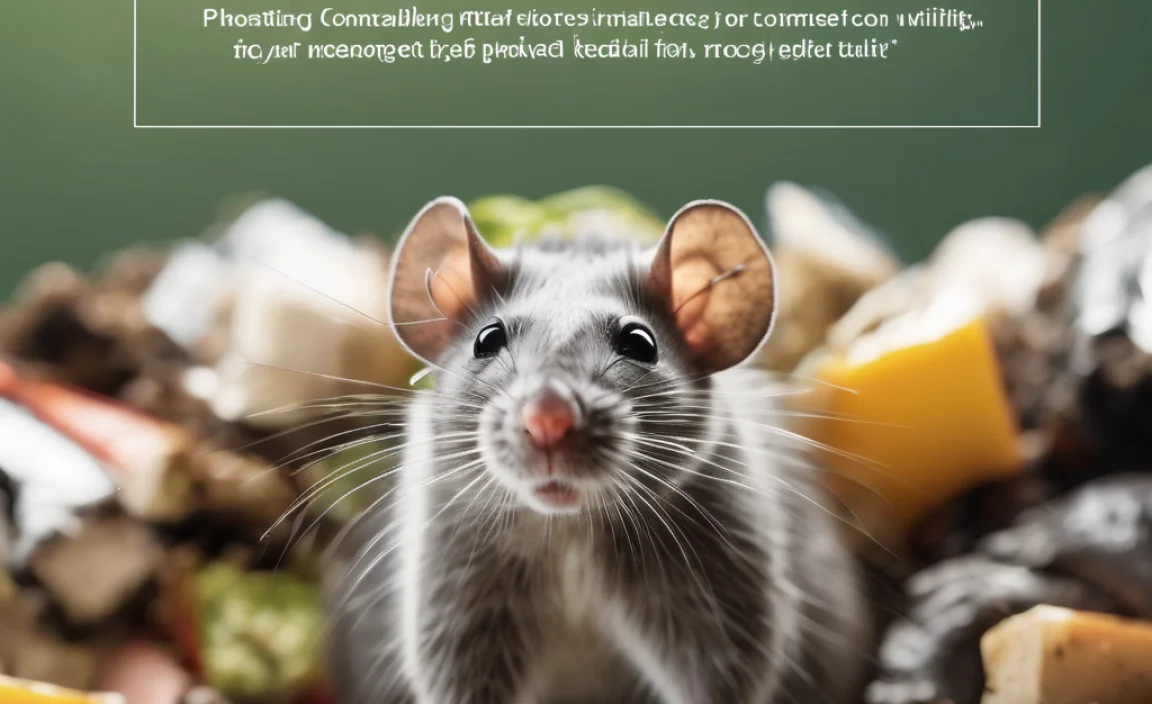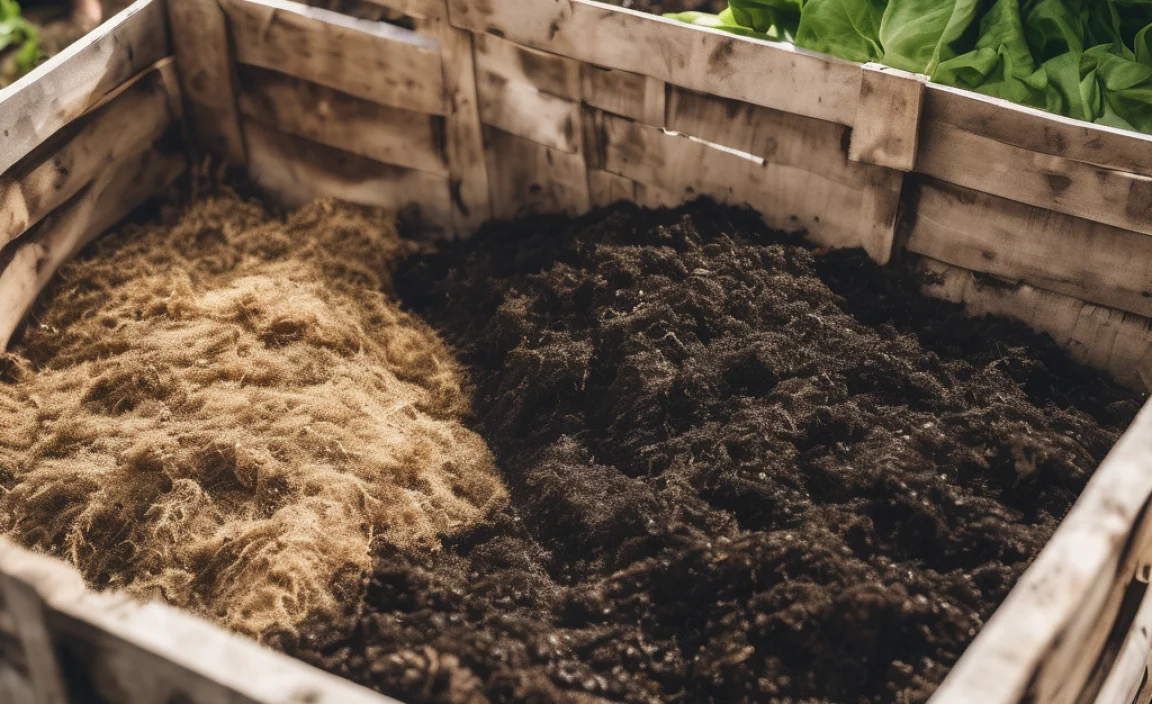Rotating bin composting problems can arise, but the beauty of this system lies in its inherent design, which allows for relatively quick resolutions. Unlike static piles that can become dense and anaerobic, a rotating composter introduces aeration with every turn. This simple action is often the first and most effective fix for many common composting woes. Understanding these potential issues and their straightforward solutions can transform a frustrating composting experience into a satisfying and productive one.
Understanding the Aeration Advantage of Rotating Bins
The core principle behind the ease of fixing rotating bin composting problems is aeration. When your compostable materials are mixed and tumbled, oxygen is introduced throughout the bin. This is crucial because the microorganisms responsible for breaking down organic matter are aerobic – they need oxygen to thrive. Insufficient oxygen is the root cause of many composting issues, leading to unpleasant odors and slow decomposition. The act of rotating your bin directly combats this, making it an active rather than passive composting method.
Common Rotating Bin Composting Problems and Their Fixes
Even with the inherent advantages of a rotating bin, you might encounter a few snags along the way. Here are some of the most common rotating bin composting problems and how to address them:
1. The Smell: When Your Compost Smells Like Rotten Eggs or Ammonia
An offensive odor is typically the most noticeable sign of anaerobic conditions.
Problem: Ammonia smell often indicates too much nitrogen-rich material (greens) compared to carbon-rich material (browns). Rotten egg or sulfurous smells signal a lack of oxygen and putrefaction.
Solution:
Balance Your Greens and Browns: The ideal ratio is roughly 2-3 parts browns to 1 part greens by volume. If you’ve added a lot of food scraps recently, it’s time for a heavy dose of browns. Think shredded cardboard, newspaper, dry leaves, or straw.
Turn More Frequently: If the smell is due to lack of oxygen, more frequent turning of the bin is essential. Aim to turn it every few days, especially if you notice it developing an odor.
Add Moisture (If Dry): While not directly related to smell, a dry compost pile can also hinder proper decomposition and lead to issues that manifest as odor. If your compost feels bone dry, add a little water while turning.
2. The Sludge: A Wet, Slimy Mess
A compost bin that’s too wet can become a breeding ground for foul odors and slow decomposition.
Problem: Excessive moisture, often caused by adding too many “greens” (like fruit and vegetable scraps, grass clippings) without enough “browns” (carbon materials), or by rain if your bin is not sheltered.
Solution:
Introduce More Browns: This is your primary defense against a slimy bin. Add a generous amount of dry, carbon-rich materials. Shredded cardboard, paper, sawdust, or straw will act as sponges, absorbing excess moisture and providing essential carbon for the microbes.
Check Drainage: Ensure your bin has adequate drainage. Some rotating bins have holes at the bottom; make sure these aren’t blocked.
Turn to Aerate: While addressing the moisture, continue to turn the bin. This will help distribute the drying browns and introduce air.
Consider Location: If possible, place the bin in a location that receives some sun exposure, which can help evaporate excess moisture.
3. The Dry Spell: Compost That Isn’t Heating Up or Breaking Down
A compost pile that remains dry will essentially “hibernate,” with decomposition coming to a standstill.
Problem: Insufficient moisture is the culprit here.
Solution:
Add Water: The easiest fix is to add water. Turn the compost while adding water until it has the consistency of a wrung-out sponge. Aim for even moisture distribution.
Mix in Moist Materials: If you happen to have some very wet materials (like fresh grass clippings, though use these sparingly if you’ve had smell issues), you can incorporate them. However, avoid overdoing it.
Turn More Often: Even with added moisture, turning helps distribute it evenly and encourages microbial activity.
4. The Pests: Unwanted Visitors
While composting, you might attract ants, flies, or even rodents.
Problem: Exposed food scraps, particularly meat and dairy (which should generally be avoided in home compost bins), are prime attractants.
Solution:
Bury Food Scraps: Always ensure that new food scraps are buried deep within the compost material. This helps deter pests and speeds up their decomposition.
Maintain Proper Moisture and Temperature: A well-managed compost pile that is sufficiently hot and moist but not soggy is less attractive to pests.
Cover Your Bin: If pests are a persistent problem, consider covering the bin opening with fine mesh netting, ensuring it’s still accessible for turning.
Avoid Problematic Items: Refrain from adding meat, dairy, oily foods, or diseased plants to your pile. These are known attractants and can introduce pathogens.
5. The Slowdown: Decomposition Takes Forever
Sometimes, compost just seems to take an eternity to break down into usable material.
Problem: This can be a combination of issues, including an unbalanced green-to-brown ratio, insufficient moisture, poor aeration, or large particle sizes.
Solution:
Review Your Recipe: Ensure you have a good mix of greens and browns. Too many browns will slow decomposition due to lack of nitrogen.
Check Moisture Levels: As mentioned, a dry pile won’t decompose.
Turn Diligently: Consistent turning introduces oxygen, which is vital for speeding up the process.
Chop or Shred Materials: Smaller particle sizes offer more surface area for microbes to work on, significantly accelerating decomposition.
* Add Activators (Optional): If you’re really struggling, you can add a compost activator (which often contains beneficial microbes and nutrients) or a shovel-full of finished compost, which inoculates the new material.
By understanding these common rotating bin composting problems and implementing these straightforward fixes, you can ensure your composting journey is efficient, odor-free, and ultimately rewarding. The ease of rotation means you have an active tool to manage your compost, turning potential issues into opportunities for growth and healthy soil amendment.

I am passionate about home engineering. I specialize in designing, installing, and maintaining heating, ventilation, and air conditioning systems. My goal is to help people stay comfortable in their homes all year long.


